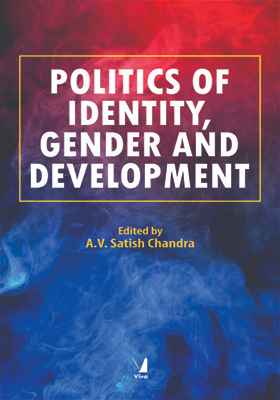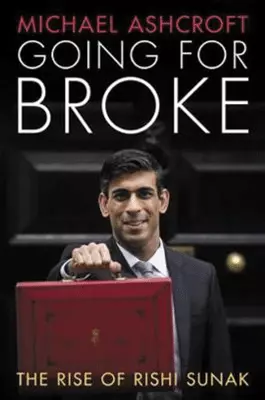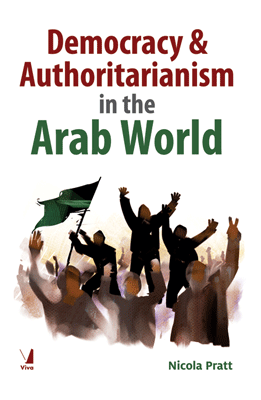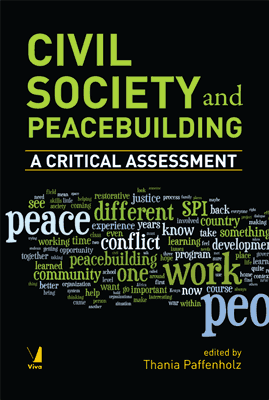The UN Security Council in the Twenty- First Century
The UN Security Council in the Twenty- First Century
₹2,695.50 ₹2,995.00 Save: ₹299.50 (10%)
Go to cartISBN: 9789386385277
Bind: Hardbound
Year: 2017
Pages: 1016
Size: 6 x 9 Inch
Publisher: Lynne Rienner Publishers, Inc.
Published in India by: Viva Books
Exclusive Distributors: Viva Books
Sales Territory: India, Nepal, Pakistan, Bangladesh, Sri Lanka
"Indispensable for students and scholars interested in just about any aspect of the UNSC."
—Choice
"This is likely to be a cornerstone of the scholarly literature on the United Nations....An essential volume."
—David Cortright, University of Notre Dame
"A very welcome addition to the literature on the UN Security Council.... It is of particular value given the excellent quality of the contributors and the fact that they include both academic and practitioners."
—Courtney B. Smith, Seaton Hall University
Description:
Winner of the Friends of ACUNS Book Award, 2016!
After grappling for two decades with the realities of the post- Cold War era, the UN Security Council must now meet the challenges of a resurgence of great power rivalry. Reflecting this new environment, The UN Security Council in the 21stCentury provides a comprehensive view of the council's internal dynamics, its role and relevance in world politics, and its performance in addressing today's major security challenges.
Target Audience:
Students and scholars interested in just about any aspect of the UNSC.
Contents:
Foreword, Terje R'd-Larsen
Preface
Acknowledgments
Chapter 1: Introduction, Sebastian von Einsiedel, David M. Malone, and Bruno Stagno Ugarte • Chapter 2: The UN Security Council: Decisions and Actions, Peter Wallensteenand Patrik Johansson
Part 1: Competing Interests on the Security Council • Chapter 3: The United States in the Security Council, Stephen John Stedman • Commentary: The Permanent One's Search for Maximum Flexibility, David Bosco,75 • Chapter 4: China in the Security Council, Zhu Wenqi and Leng Xinyu • Chapter 5: Russia in the Security Council, Dmitri Trenin • Chapter 6: France and the United Kingdom in the Security Council,Thierry Tardy and Dominik Zaum • Chapter 7: Power Dynamics Between Permanent and Elected Members, Colin Keating • Chapter 8: Council Reform and the Emerging Powers, Kishore Mahbubani • Chapter 9: Working Methods: The Ugly Duckling of Security Council Reform, Christian Wenaweser • Chapter 10: The Security Council at Seventy: Ever Changing or Never Changing: Edward C. Luck
Part 2: Addressing Thematic Issues • Chapter 11: Humanitarian Action and Intervention, Thomas G. Weiss • Chapter 12: Promoting Democracy, Francesco Mancini • Chapter 13: Acting on Human Rights, Joanna Weschler • Chapter 14: Responding to Terrorism, Peter Romaniuk • Chapter 15: Confronting Organized Crime and Piracy, James Cockayne • Chapter 16: Weapons of Mass Destruction: Managing Proliferation, Waheguru Pal Singh Sidhu
Part 3: Enforcing Council Mandates • Chapter 17: The Use of Force: A System of Selective Security, Adam Roberts • Chapter 18: Robust Peacekeeping and the Limits of Force, Jean-Marie Gu’henno • Chapter 19: The Security Council and NATO, Herman Schaper • Chapter 20: The Role of Sanctions, Sue Eckert
Part 4: Evolving Institutional Factors • Chapter 21: Relations with the UN Secretary-General, Simon Chesterman • Chapter 22: Special Representatives of the Secretary-General, Connie Peck • Chapter 23: Collaborating with Regional Organizations, Bruno Stagno Ugarte • Chapter 24: Groups of Friends, Teresa Whitfield • Chapter 25: International Courts and Tribunals, Eran Sthoeger
Part 5: Key Country Cases • Chapter 26: The Arab-Israeli Conflict, Markus E. Bouillon • Chapter 27: Iraq, David M. Malone and Poorvi Chitalkar • Chapter 28: The Balkans, Mats Berdal • Chapter 29: Somalia, John L. Hirsch • Chapter 30: Sudan, Heiko Nitzschke • Chapter 31: Afghanistan, Francesc Vendrell • Chapter 32: The Democratic Republic of the Congo, Tatiana Carayannis • Chapter 33: C’te dIvoire, Arthur Boutellis and Alexandra Novosseloff • Chapter 34: Libya, Alex ‘J. Bellamy and Paul D. Williams • Chapter 35: Syria, Salman Shaikh and Amanda Roberts • Commentary: The Council's Failure on Syria, Raghida Dergham
Part 6: The Security Council and International Order • Chapter 36: The Security Council and Peacekeeping, Richard Gowan • Chapter 37: The Security Council and International Law, Ian Johnstone • Chapter 38: The Security Council and the Changing Distribution of Power, Bruce Jones • Chapter 39: The Security Council in a Fragmenting World, Jeremy Greenstock • Chapter 40: Conclusion: The Security Council and a World in Crisis, Sebastian von Einsiedel, David M. Malone, and Bruno Stagno Ugarte
Appendixes: Security Council-Mandated UN Peacekeeping Operations and Observer Missions, 1945-2014 • Security Council-Mandated UN Political Missions, 1989-2014 • Non-UN Peace or Enforcement Operations Mandated by the Security Council, 1945-2014 • Security Council-Mandated Sanctions Regimes, 1945-2014 • Vetoes Cast in the UN Security Council, 1989-2014
List of Acronyms
Bibliography
The Contributors
Index
About the Book
About the Editors:
Sebastian von Einsiedel is director of the UNU Center for Policy Research.
David M. Malone is under-secretary-general of the United Nation and also rector of the UN University (UNU).
Bruno Stagno Ugarte, most recently executive director of the Security Council Report, now serves as deputy executive director for advocacy at Human Rights Watch.







